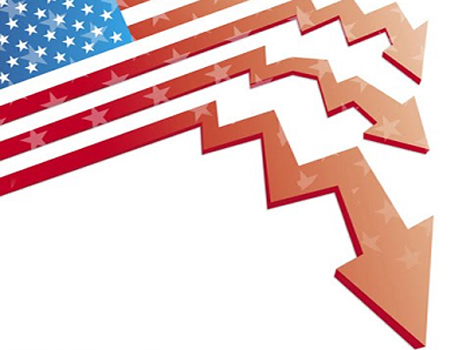The former Vice-President Joe Biden has been elected the 46th President of the United States of America defeating the incumbent Donald Trump. Whilst Donald Trump has announced he will be legally challenging the election, for the supporters of the Democrats it brings to an end the aberration of the Trump administration. The Biden administration will now take its first steps to resolving the prevailing issues which the Trump administration either created or failed to deal with during Trump’s presidency. The US faces significant domestic and international challenges which the Biden administration will inherit and will need to navigate. Whilst many are looking for changes in US policy it’s unlikely the Biden administration will make any radical changes due to limitations all presidents face and due to the lack of any radical policy positions during Biden’s electoral campaign.
Domestic Priorities
According to several reports, President-elect Joe Biden aims to immediately deal with the COVID-19 pandemic by establishing at least ten testing centres in every state, call upon federal agencies to deploy resources and give firmer national guidance through federal experts. He has stated all governors should mandate wearing masks. Biden also wants to provide free testing for all and hire 100,000 people to set up a national contact-tracing programme. Biden’s plan to increase federal involvement, was mostly absent under Trump’s term. According to Amanda D. Castel, MPH, “I think in general, the ‘Achilles heel’ in our response has been a lack of federal strategy to guide us through this pandemic.”
The major challenge the Biden administration will face is the divide between the Republicans and Democrats – which was clearly illustrated in the recent elections polls. On a number of domestic issues bipartisan support will be needed to fix America’s woes, especially on the economic front.
Biden’s financial plans are focused on solving the economic issues that have resulted from Covid-19. A number of reports mention Biden plans to increase unemployment insurance, send more direct payments to struggling Americans, forgive ‘some’ student loans and provide more aid to small businesses. But the US faces a number of more fundamental economic problems such as huge wealth inequality, growing unemployment, the several decades of wage stagnation, low investment and the financial sector’s dominance of the US economy: all of which Biden presented little on how he will deal with them. These were the same issues Trump said he would resolve and now Biden is inheriting them.
Biden’s plans for racial justice include proposals for economic changes to create better opportunities for the non-white population. Some of these changes are based upon operational zones, state small business credit initiative (SSBCI) and private equity investment in businesses. Similar policies were implemented under the Obama administration and created a whole new set of issues.
Biden will require significant cooperation from the Republicans, especially for stimulus packages which under Trump reached unprecedented levels, both increasing federal deficit and debt. Henceforth, the Republicans are keen to maintain a check on Joe Biden’s attempts to save the country from a depression.
There are several domestic issues that the Biden administration will need to grapple with, however, the proposed policies from Biden are very similar to the previous administrations and are not unique in anyway
Whilst a new US president always attracts global attention in reality the president has very little ability to make radical changes to US strategic policy
The Biden Foreign Policy
America’s main foreign policy priority is China. It is based around preventing a regional hegemon within Eurasia. Biden now inherits this strategic dilemma.
The Trump administration did not utilise the international framework to deal with China which the US utilised since 1991. President Trump waged aggressive trade wars on China, which resulted in hurting American corporations and also her allies. This unilateral approach has seen the US isolated internationally. Biden has stated he will restore America’s traditional internationalist approach where global free trade, collective security pacts and international institutions would be given priority and honoured by America.
The Biden administration will also likely take a hostile position towards China as his predecessor did, Biden made this clear during the Presidential debates. Biden stated, “We are making sure that to do business in China you have to give all your intellectual property. You have to get – have a partner in China that has 51 per cent. We would not do that at all, number one. Number two, we’re in a situation where China would have to play by the rules internationally as well. When I met with Xi and when I was still vice president, he said we’re setting up air identification zones in the South China Sea. You can’t fly through them. I said we’re going to fly through them. We just flew B-52 – B-1 bombers through it. We’re not going to pay attention. They have to play by the rules.”
America’s main foreign policy priority is China. It is based around preventing a regional hegemon within Eurasia. Biden now inherits this strategic dilemma
Biden’s statement indicates that his administration will also not recognise China as an important player in the international arena and is not willing to make any significant compromises with her. Instead Biden will impose international norms to marginalise China and create a staunch opposition toward its rise. After the US media declared Biden victorious, China has not congratulated Biden for his electoral victory which would indicate China doesn’t perceive a newcomer to the White House with optimism.
President Trump built a close relationship with Israel and provided military platforms and economic aid which reached unprecedented levels. The ‘Deal of the Century’ led to the normalisation with a number of Arab nations but halted annexation which the Israelis sought. Beyond normalisation it would seem the US had no intentions of supporting Israeli demands. In fact Israel’s proposed annexation had made little progress and has been halted by the US.
It is unlikely Israel will gain further concessions under the democrats as it did under the Trump administration. Furthermore, both the Democrats and Republicans, besides their unequivocal support for Israel, have provided broken promises to the Israelis since America has always restrained her. Biden intends to resume the Israeli-Palestinian peace process which would undermine Israel’s recent progress made under Trump administration. The Khaleej Times recently reported, “The historic peace accord reached between the UAE and Israel on September 15 had been delayed for years due to the stiff resistance put up by the U.S. administration of Barack Obama, a former Israeli minister has revealed.”
On Iran, Biden has stated he is determined to reach out to Iran for a new nuclear deal, which was heavily contested by Netanyahu under the Obama-Biden administration and ended by Trump. A former senior aide to Joe Biden said rejoining the Iran nuclear deal was “high on his agenda” and that the US president-elect would pursue the deal shortly after taking office. Despite Israel’s lobbying efforts, the Democrats refused to consider Israel’s security concerns and went ahead with the nuclear deal in 2015. The Biden administration will in all likelihood sign another nuclear accord which will provide Iran, once again, access to international markets including exporting oil. Biden has for the moment not indicated if this will include Iran’s Ballistic Missile Programme or either how he will deal with Iran’s regional ambitions. It remains to be seen if the rhetoric will align with US actions in the case of Iran.
The Trump administration strained the transatlantic relationship. It’s unlikely Biden will change course and will continue to exert pressure on her European allies. Trump criticised Europe for not contributing financially to NATO and it’s likely Biden will continue with this policy. Biden will want to see the Europeans take on much more responsibility in carrying out US commitments within NATO. When the Obama-Biden administration announced the pivot to Asia strategy it resulted in a rift within the Transatlantic relationship as the US moved troops from Europe to Asia, leaving Europe to do much of the heavy lifting. It’s unlikely the Biden administration will make significant changes to this policy.
Whilst a new US president always attracts global attention in reality the president has very little ability to make radical changes to US strategic policy. The US president shares power with the Senate and a host of entities from the financial sector, defence establishment and transnational corporations. All presidents bring their unique approach to achieve US strategic goals, but these strategic goals are rarely altered. The US does face a crisis as a superpower as she has had very few foreign policy successes since 2003. Domestically, since the global economic crisis in 2008, America’s domestic challenges have grown and become more troublesome, at the same time successive administrations have shown little ability to solve them.



